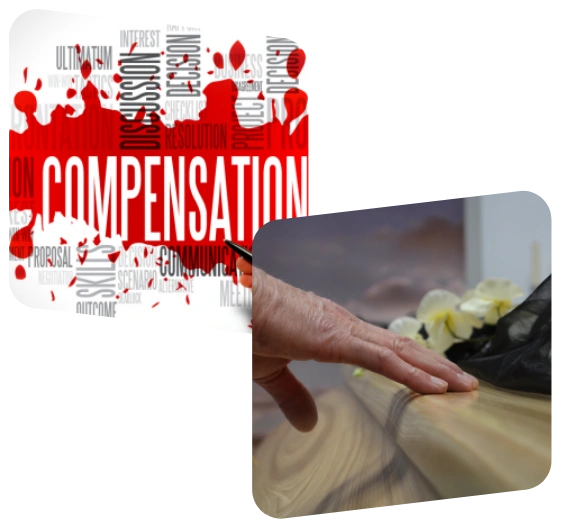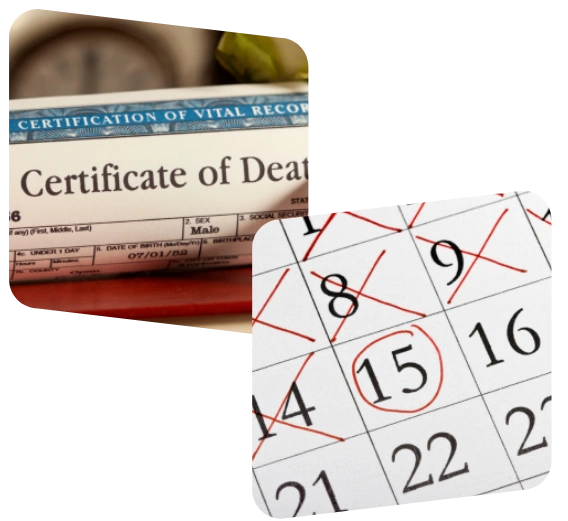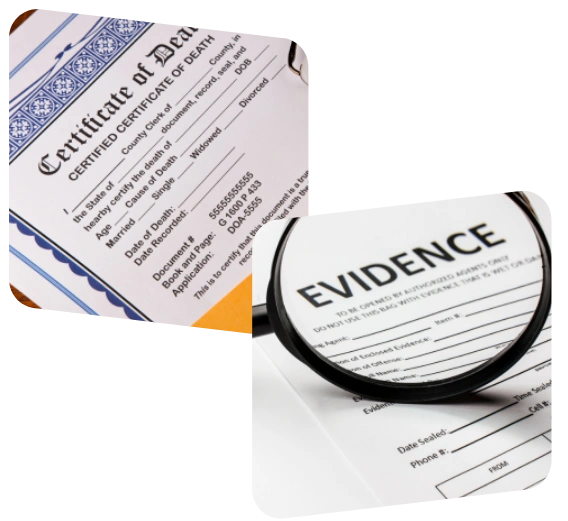Wrongful Death Claims in Arizona
Victory Legal Solutions will help you move forward with clear guidance, not legal confusion.
What Counts as “Wrongful Death” in Arizona?
Arizona law allows a civil claim when a death is caused by another’s wrongful act, neglect, or default — the same conduct that would have supported a personal injury case if the person had survived.
Who Can Bring the Claim (and How Recovery Is Shared)
Under A.R.S. § 12-612, a wrongful death action may be brought by the surviving spouse, child, parent/guardian, or the personal representative of the decedent on behalf of those survivors (and if none exist, on behalf of the estate).
Any amount recovered is distributed to the statutory beneficiaries in proportion to their individual losses; if the recovery is for the estate, it becomes an asset of the estate.
What Compensation May Be Available
Typical categories families discuss with the attorney we introduce may include:
- Financial losses: funeral/burial costs; income and benefits the decedent would have provided.
- Loss to the family: loss of love, care, companionship, guidance, and household services.
- Medical expenses related to the final injury/illness (often handled through a related survival claim).


Deadlines: Don’t Lose Your Right to File
- General two-year deadline. Arizona’s statute of limitations for personal injury and for injuries “when death ensues” is two years from accrual (usually the date of death for wrongful death).
- Claims involving public entities. If a potential defendant is a public entity or employee (city, county, state, public hospital, school, etc.), Arizona requires a Notice of Claim within 180 days of accrual and a lawsuit within one year. Missing either deadline can bar the claim.
Wrongful Death vs. Survival Action (Two Different Paths)
Arizona recognizes both a wrongful death action (for losses suffered by survivors) and a survival action (claims that belonged to the decedent and now belong to the estate).
Under A.R.S. § 14-3110, most claims survive a person’s death, but pain and suffering of the decedent is not recoverable in a survival action. An attorney can decide whether to pursue one or both, and how to allocate expenses and recoveries.
How Victory Legal Solutions Helps Families
- Thoughtful intake (no cost): We listen, collect first facts, and outline the immediate steps we can handle.
- Records & proof, organized: Death certificate, police reports, EMS and hospital records, treating-provider bills, employment data (earnings/benefits), photos, video, and witness details — kept in one place so nothing gets lost.
- Insurance & claim logistics: We open claims where appropriate, coordinate property-damage issues (if a crash is involved), and maintain call logs.
- Attorney introductions: We connect you with Arizona-licensed attorneys experienced in wrongful death litigation — medical, roadway, product, workplace, or premises cases.
- Care coordination: When requested, we help schedule appointments and track follow-ups.
- Status updates: One point of contact. Clear milestones.


Common Situations That Lead to Wrongful Death Cases
- Motor vehicle crashes (cars, trucks, motorcycles, pedestrian, bicycle, rideshare)
- Medical events (alleged malpractice, surgical errors, misdiagnosis/delayed diagnosis, birth injuries)
- Unsafe premises (falls, inadequate maintenance, security issues)
- Defective products (auto parts, consumer goods, equipment)
- Work and construction incidents (including third-party liability)
First 48-Hour Checklist for Families
- Request multiple death certificates (certified copies).
- Gather documents: photos/videos, contact info for witnesses and involved parties, incident numbers, medical records you already have.
- Secure personal accounts and devices (email, phone, apps) that may hold evidence.
- Track expenses (funeral, travel, counseling, time off work).
- Call Victory Legal Solutions to centralize records and coordinate next steps — including a referral to an Arizona-licensed attorney when appropriate.

FAQs on Arizona Wrongful Death Claims
Are there damage caps in Arizona wrongful death cases?
Arizona law does not cap wrongful death damages, and juries award what they deem “fair and just” in light of the circumstances.
Who receives the money if there is a recovery?
Statutory beneficiaries (spouse, children, parents) share in proportion to their damages; if the recovery is on behalf of the estate, it becomes an estate asset.
Can punitive damages be part of a wrongful death case?
Yes, Arizona courts have recognized that the “aggravating circumstances” language permits punitive damages in appropriate cases.
What if the potential defendant is a city, county, or state agency?
Arizona’s Notice of Claim rules apply (180-day notice; suit within one year). These deadlines are shorter than the general two-year period.
What’s the difference between a wrongful death claim and a survival claim?
Wrongful death compensates survivors; a survival action belongs to the estate and excludes the decedent’s pain and suffering.
Start With a No-Cost Intake
Call us at Victory Legal Solutions.
We’ll gather documents, set up claims, and when needed, introduce you to an Arizona-licensed attorney aligned with your case.
